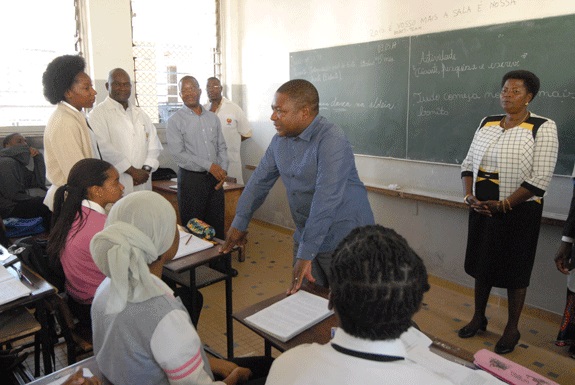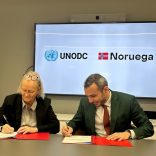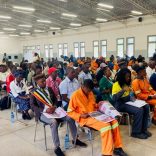Mozambique – New displacements due to NSAG attacks, Situation Report #1 – Chiúre, Ancuabe and ...
Watch: Delay in paying overtime a symptom of mismanagement – Nyusi

Notícias
Mozambican President Filipe Nyusi on Wednesday declared that the chronic problem of unpaid overtime for the country’s teachers was a symptom of mismanagement in the country’s education system.
Chairing a meeting of the Ministry of Education’s Consultative Council, after visiting the Ministry and several of its subordinate institutions, Nyusi was told that the Ministry has an enormous debt to teachers because of its failure to pay overtime.
Data provided by Education Minister Conceita Sortane indicated that between 2013 and 2017 the total debt referring to overtime pay was more than a million meticais (about 15,500 US dollars at current exchange rates, but worth considerably more prior to the sharp depreciation of the metical last year).
“Much of the overtime debt results from mismanagement”, Nyusi accused. “When we have a situation in which teachers are working more overtime than normal hours, that’s a sign that something is wrong”.
“Teaching activity should take place during normal working hours”, he insisted. “Accumulating overtime sometimes means disorganisation. Overtime should not be used to disguise lack of planning”.
Nyusi also criticised the poor quality of many school buildings. Nothing, he said, could justify building schools that are unable to resist high winds. When he had visited Inhambane province, shortly after it had been hit by Cyclone Dineo in mid-February, Nyusi found that the winds had blown zinc roofs off schools – while nearby houses, although built of flimsy materials, resisted the cyclone and did not lose their roofs.
The President was irritated by unfinished schools. Contractors had taken money from the State, but had not completed the jobs. Nyusi did not want a simple survey of the problem – he wanted the Ministry to advance to “a definitive solution”.
He promised that contractors who left schools unfinished would be pursued “without quarter”. They had taken state financial resources, and had failed to solve the problem of the many thousands of Mozambican schoolchildren who are obliged to study in the open air.
In the morning, Nyusi made an unexpected visit to the Francisco Manyanga Secondary School, one of the largest schools in Maputo. In the school garden, he saw a broken tap, which spewed water uncontrollably onto the ground – at a time when there are serious water shortages in the city. But the school management did not seem remotely concerned.
Inside the school, Nyusi found a complaints box, and asked to see what it contained. But school staff told him the key to the box had been lost, and nobody had opened it since 2014. Nyusi ordered staff to break the box open, When they did so, it was found to be full of dust and spiders’ webs, plus letters of complaint dated 2014 and 2015. Those complaints largely concerned absenteeism by the teachers.
Teacher absenteeism is a chronic problem, which is now calling into question the very existence of the night shift in schools. The night shift begins at 18.00, but Nyusi noted that pupils often go home at 19.00 because there are no teachers present to teach the classes.
He asked whether it made sense to keep the night shifts under these circumstances. Nyusi recalled that when he was a student “lots of people used to study at night, and nobody played about like this”.
There were also a large number of “advisors” in the Education Ministry, and their tasks were unclear. “You’ve got a lot of advisers. What are they doing?”, asked Nyusi. “You’ve got more advisers than the President of the Republic has”.
Ministry officials claimed this situation was inherited from Sortane’s predecessor, Jorge Ferrao. Nyusi said the advisers should be given real jobs inside the Ministry where their skills would be useful. “These cadres could do something other than all sit in an office”, he suggested.











Leave a Reply
Be the First to Comment!
You must be logged in to post a comment.
You must be logged in to post a comment.